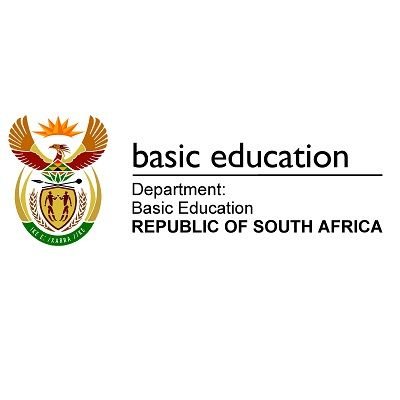
The Department of Basic Education (DBE) in South Africa has recently implemented strategies aimed at reducing youth unemployment by hiring Education Assistants (EAs) and Graduate Assistants (GAs) as part of the Presidential Youth Employment Initiative within the basic education sector. This initiative is designed to motivate current matriculants to excel in their studies, offering them the opportunity to work as assistant teachers upon graduation. However, this approach has sparked significant concerns among qualified graduates who have dedicated years to university education to become professional teachers.
Qualified graduates, holding degrees or diplomas in education, find themselves competing for roles that now seemingly require only a matriculation certificate. This shift raises critical questions about the value of higher education in the field of teaching and whether the department undermines the importance of formal teacher training.
The core of the issue lies in the employment practices of the DBE, which appear to favor hiring matriculants as EAs and GAs for positions that traditionally would be filled by qualified teachers. This practice not only impacts the employment prospects of graduates but potentially devalues the significance of obtaining a higher education degree or diploma in teaching. The remuneration discrepancy further highlights the disparity: assistant teachers earn a monthly salary of approximately ZAR 4,080, significantly less than their qualified counterparts, suggesting a possible cost-saving strategy at the expense of educational quality.
Critics argue that by prioritizing the hiring of less-qualified individuals for teaching roles, the DBE might be inadvertently discouraging future students from pursuing teaching degrees, undermining the profession’s integrity. There is a growing call for clarity and a reevaluation of hiring practices within the DBE to ensure that the value of qualified teaching professionals is recognized and preserved.
This situation necessitates a comprehensive discussion about the standards for teaching roles and the future of education in South Africa. The DBE is urged to consider the long-term implications of its current employment strategy on the quality of education and the professional development of teachers.”
SOLUTION TO THIS PROBLEM
Addressing the concerns surrounding the employment of education assistants (EAs) and graduate assistants (Gas) in lieu of qualified teachers in South Africa’s Department of Basic Education (DBE) requires a multifaceted approach. Here are some potential solutions to ensure that the education sector adequately values both newly qualified teachers and the role of assistants, while also maintaining high educational standards:
1. Create Clear Career Pathways for EAs and Gas**
- Implement structured programs that allow EAs and Gas to gain further qualifications and transition into fully qualified teaching positions. This could involve part-time study opportunities, scholarships, or accelerated teacher training programs specifically designed for those with practical classroom experience.
2. Establish a Mentorship Program**
- Pair EAs and Gas with experienced teachers for mentoring, ensuring they receive guidance and can develop their teaching skills under professional supervision. This can improve teaching quality and prepare EAs and Gas for future roles as fully qualified teachers.
3. Prioritize Hiring of Qualified Teachers for Permanent Positions**
- Ensure that permanent teaching positions are primarily offered to candidates with teaching degrees or diplomas, preserving the incentive for pursuing higher education in teaching. This approach recognizes and rewards the commitment to professional qualification.
4. Develop a Dual-Track System**
- Introduce a dual-track system where both qualified teachers and teaching assistants have clearly defined and separate roles within schools. This ensures that assistants support qualified teachers without replacing them, maintaining educational standards and allowing both to focus on what they are trained for.
5. Increase Investment in Teacher Training and Salaries**
- Allocate more resources to the training of teachers and offer competitive salaries to attract and retain talent. This includes providing adequate compensation to EAs and Gas, recognizing their contribution while also reflecting the difference in qualifications and responsibilities.
6. Enhance Professional Development Opportunities**
- Offer continuous professional development for all educators, including workshops, courses, and conferences that enable them to stay abreast of the latest teaching methods and educational research. This ensures ongoing improvement in teaching quality.
7. Implement Rigorous Evaluation and Feedback Mechanisms**
- Establish regular evaluation processes for both EAs/Gas and qualified teachers to ensure teaching standards are met. Feedback from these evaluations should be used constructively to guide professional development.
8. Public Awareness and Transparency**
- Clearly communicate the roles, qualifications, and contributions of both EAs/Gas and fully qualified teachers to the public. This helps manage expectations and clarifies the importance of professional teaching qualifications.
By adopting these strategies, the DBE can better balance the need to address immediate staffing needs with the long-term goal of enhancing the quality of education through the professional development of teachers. This approach will not only valorize the teaching profession but also ensure that students receive the highest standard of education.